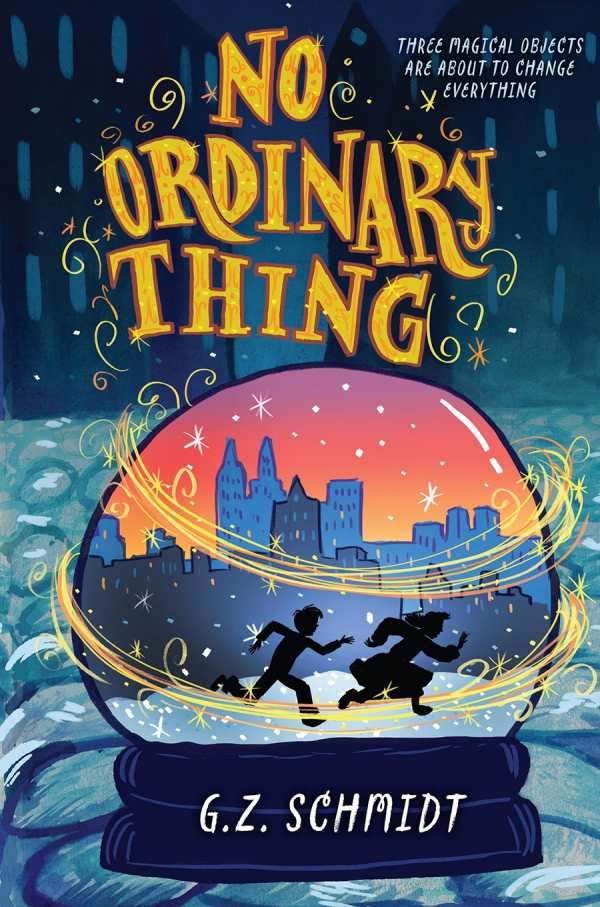No Ordinary Thing
A quiet orphan, a magic snow globe, and an evil factory owner feature into G. Z. Schmidt’s charming novel No Ordinary Thing.
Ever since twelve-year-old Adam’s parents disappeared on a trip, he has lived with his uncle above the Biscuit Basket Bakery, helping to make ends meet. Then Adam finds his parents’ old snow globe, which contains the secret of time travel. He begins to hope that he can save his parents. But Adam can’t control where the snow globe takes him, and he isn’t the only one who wants it.
The book’s story lines run throughout time and merge together well. Each of Adam’s adventures results in a fragment of his sense of the past, especially related to the mysterious cover-up of a tragic fire. He interacts with characters at different points in their lives—a reminder that, even as time passes, a person’s need for human connections and friendships remains, as do the dangers of hatred and greed.
The cast is diverse. It includes Adam’s hardworking Uncle Henry, the ominous M, and a plucky thief, Francine. These characters serve as representations of the perennial virtues and vices of human beings; each helps Adam learn that the best way to honor the past is to move on.
The novel is set in New York and contains clever historical allusions. Its villain, greedy Robert Tweed Barron, is an allusion to notorious robber barons and figures like Boss Tweed, who fed corruption into nineteenth-century New York. Such touches emphasize the dangers of unregulated corporations and the corruptive potential of wealth.
Resolving mysteries and featuring glimpses into its hero’s future, No Ordinary Thing is no ordinary time travel story; it contains timeless lessons on friendship, bravery, and letting go.
Reviewed by
Vivian Turnbull
Disclosure: This article is not an endorsement, but a review. The publisher of this book provided free copies of the book to have their book reviewed by a professional reviewer. No fee was paid by the publisher for this review. Foreword Reviews only recommends books that we love. Foreword Magazine, Inc. is disclosing this in accordance with the Federal Trade Commission’s 16 CFR, Part 255.

